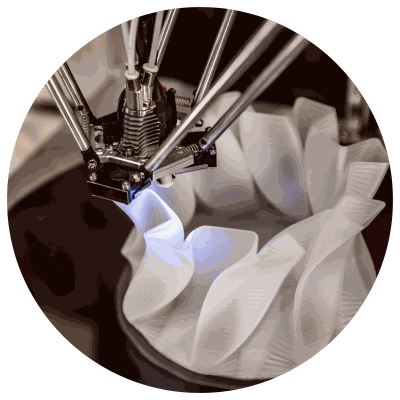Factors that affect quality and shape complexity of delicious 3D printed food
April 21, 2023 | Food Testing Lab
3D-food printing could just be the panacea to global challenges of food supply and nutrition. However, there are still hurdles in adapting additive manufacturing that needs to be addressed.
Additive manufacturing involves a lot of procedures: designing, pre-processing, manufacturing, and post-processing. Each of these steps breeds an opportunity for the creation of innovative foods. Researchers from the University of Ottawa identified a range of factors and features that would affect the food’s quality, improve control, and speed up printing process and production.

Factors such as changing the printing patterns and ingredients of the initial mix or paste impacts the food’s matrix and microstructures, consequently affecting the food’s texture. The flow of the mix is also fundamental and is a function of how ingredients are controlled and the process conditions.
According to Pulatsu, one of the research proponents, extrusion-based 3D printing is the most appropriate and practical technique for food. Ensuring a steady, continuous flow is the first step to successful printing, resulting in designing and producing shapes by layering string-like material in a controlled manner.
Other mechanisms include material jetting which uses liquid binders deposited on powder, which leads to the formation of self-supporting layers. Liquid inks that solidify after deposition can also be utilized. Still, for a more efficient processing for the food industry, the establishment of a printing path or a series of computer-controlled movements is crucial, especially that this is often skipped in food applications.
The researchers suggested that future studies should consider the cost-effectiveness of various technologies in terms of build time and toolpath strategies. The quality of edible materials, novel food, and its matrices should be designed in consultation with experts, from food scientists to chefs and engineers to meet current needs.